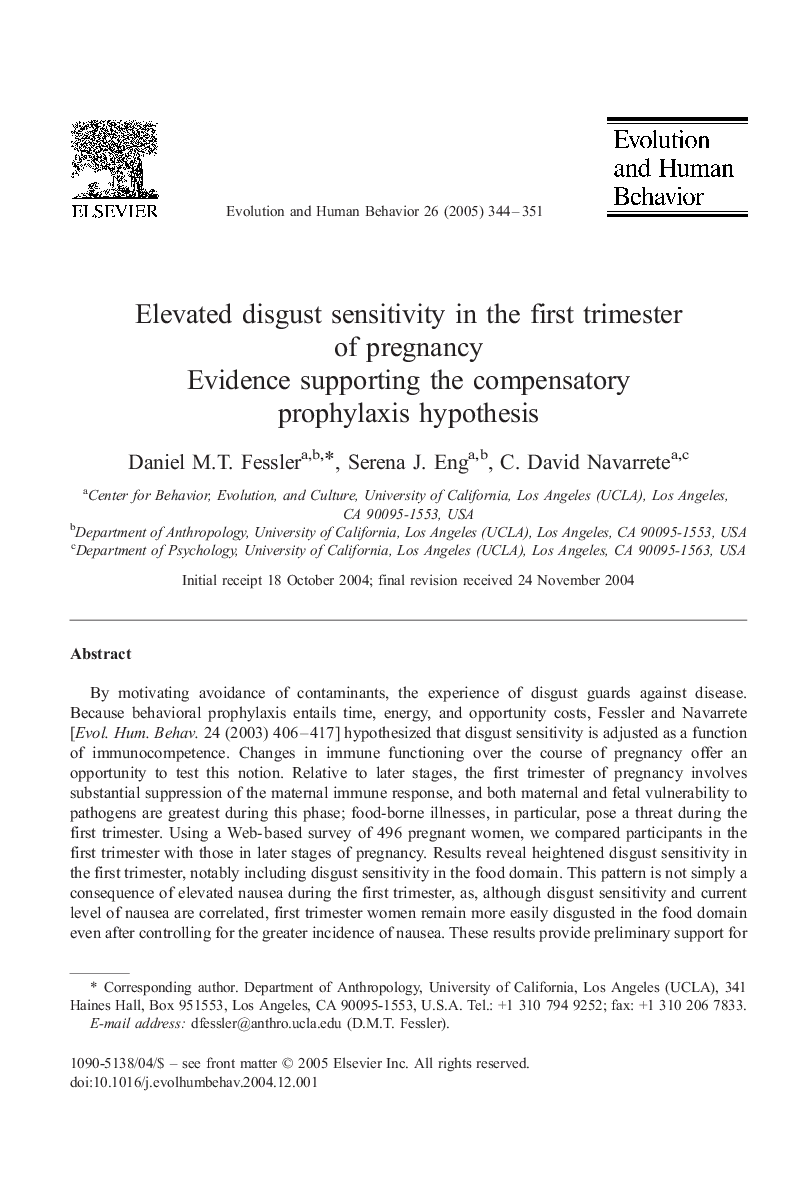| کد مقاله | کد نشریه | سال انتشار | مقاله انگلیسی | نسخه تمام متن |
|---|---|---|---|---|
| 10464076 | 925484 | 2005 | 8 صفحه PDF | دانلود رایگان |
عنوان انگلیسی مقاله ISI
Elevated disgust sensitivity in the first trimester of pregnancy
دانلود مقاله + سفارش ترجمه
دانلود مقاله ISI انگلیسی
رایگان برای ایرانیان
موضوعات مرتبط
علوم زیستی و بیوفناوری
علوم کشاورزی و بیولوژیک
بوم شناسی، تکامل، رفتار و سامانه شناسی
پیش نمایش صفحه اول مقاله

چکیده انگلیسی
By motivating avoidance of contaminants, the experience of disgust guards against disease. Because behavioral prophylaxis entails time, energy, and opportunity costs, Fessler and Navarrete [Evol. Hum. Behav. 24 (2003) 406-417] hypothesized that disgust sensitivity is adjusted as a function of immunocompetence. Changes in immune functioning over the course of pregnancy offer an opportunity to test this notion. Relative to later stages, the first trimester of pregnancy involves substantial suppression of the maternal immune response, and both maternal and fetal vulnerability to pathogens are greatest during this phase; food-borne illnesses, in particular, pose a threat during the first trimester. Using a Web-based survey of 496 pregnant women, we compared participants in the first trimester with those in later stages of pregnancy. Results reveal heightened disgust sensitivity in the first trimester, notably including disgust sensitivity in the food domain. This pattern is not simply a consequence of elevated nausea during the first trimester, as, although disgust sensitivity and current level of nausea are correlated, first trimester women remain more easily disgusted in the food domain even after controlling for the greater incidence of nausea. These results provide preliminary support for the hypothesis that disgust sensitivity varies during pregnancy in a manner that compensates for maternal and fetal vulnerability to disease.
ناشر
Database: Elsevier - ScienceDirect (ساینس دایرکت)
Journal: Evolution and Human Behavior - Volume 26, Issue 4, July 2005, Pages 344-351
Journal: Evolution and Human Behavior - Volume 26, Issue 4, July 2005, Pages 344-351
نویسندگان
Daniel M.T. Fessler, Serena J. Eng, C. David Navarrete,